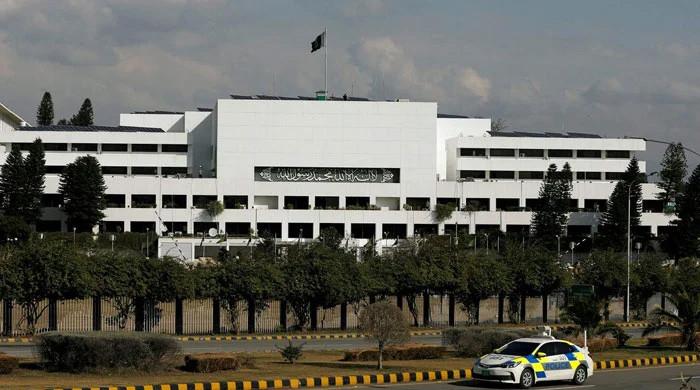Anti-Terrorism Act Amendment Passed by National Assembly
The National Assembly successfully passed the Anti-Terrorism Act (Amendment) Bill through a majority vote on Tuesday. This action reinstates the legislation that enables law enforcement agencies to hold a suspected individual for a duration of up to 90 days.
The amended law, which revives a previously existing provision subject to a sunset clause, was presented by Minister of State for Interior Talal Chaudhry during the session. The purpose of the amendment is to further refine the Anti-terrorism Act of 1997, officially titled [The Anti-terrorism (Amendment) Bill, 2024].
A separate amendment was proposed by Jamiat Ulema-e-Islam-Fazl (JUI-F) representative Aliya Kamran, who suggested referring the ATA amendment bill to the Council of Islamic Ideology (CII). However, this amendment garnered support from only 41 members and was subsequently rejected by a majority of lawmakers, leading to a protest walkout by JUI-F members.
Following this, the House approved the bill through a detailed clause-by-clause review. Earlier, the lower house had approved the motion to consider the bill with 125 votes in favor and 59 against.
The bill’s statement of intent indicates that the prevailing security landscape demands a more forceful response than what the existing legal framework provides.
The reinstatement of Section 11EEEE is deemed necessary to empower the government, Armed Forces, and Civil Armed Forces with the required authority to detain individuals posing a significant threat to national security. This measure facilitates the preventative detention of suspects based on reliable information or reasonable suspicion, thereby disrupting potential terrorist activities before their execution.
This will also provide Law Enforcement Agencies with the necessary legal support to carry out more effective counter-terrorism operations. It aims to streamline the use of Joint Interrogation Teams (JITs), comprising personnel from various law enforcement and intelligence bodies, to undertake thorough investigations and gather actionable intelligence.
The Pakistan People’s Party (PPP) endorsed the amendments put forward by the federal government in the ATA. Conversely, opposition legislators voiced strong objections to the bill. JUI-F chief Maulana Fazlur Rehman criticized the law as “discriminatory” and questioned the government’s inability to eradicate terrorism over the past 25 years.
Furthermore, Pakistan Tehreek-e-Insaf (PTI) Chairman Barrister Gohar Ali Khan argued that the law contravenes fundamental clauses of the Constitution of Pakistan.
Federal Minister for Law and Justice Azam Nazeer Tarar defended the bill, asserting the government’s right to legislate on matters of public order and security. He emphasized that the law mandates that any detained individual must be presented before a court within 24 hours.
He clarified that the Constitution permits preventive detention for a maximum of 90 days and that judicial review mechanisms are in place. Tarar also acknowledged that PPP’s Syed Naveed Qamar had proposed amendments that the government accepted.
Qamar addressed the NA session, stating that legislation is shaped by current national circumstances but cautioned against potential misuse, stressing that no one should be detained based on personal animosity. He noted that certain provisions had been removed from the bill and that action would only be taken where evidence of terrorism exists to help stabilise the situation in affected areas.
The National Assembly also approved two additional bills: the National School of Public Policy (Amendment) Bill, 2025, and the Petroleum (Amendment) Bill, 2025, as reported by the relevant Standing committees.
These bills were introduced by Minister for Parliamentary Affairs Dr. Tariq Fazal Chaudhary and Minister for Petroleum Ali Pervaiz, respectively.



Comments (0)
No comments yet. Be the first to comment!
Leave a Comment